Ciro Cappellari is film director, cinematographer, and screenwriter based in Berlin, Germany.
Ciro Cappellari is film director, cinematographer, and screenwriter based in Berlin, Germany.
Born in Buenos Aires, Argentina, in 1959, he grew up in a small town in Patagonia, Ingeniero Jacobacci. When he was 10 his family moved to San Carlos de Bariloche.
In 1980 Cappellari came to Europe, first to Italy and then later Munich, where he found work as a photo journalist with the agency Interfoto where he took portraits of public figures for newspapers in Germany and throughout Europe. He then went to Berlin in 1984 to begin his studies at the Deutsche Film- und Fernsehakademie Berlin (DFFB). In 1989 Cappellari realized his first full-length film Amor América a documentary and two years later in 1991 he realized his first feature film Hijo del Río. After this period he continued writing and directing several films such as Sin Querer –Time of the Flamingos (1997) and the documentary about the famous South African pianist Abdullah Ibrahim, A Struggle For Love (2004). Through his experience in photography he also became a well known cinematographer.
Ciro has won several awards including the best European screenplay for 100 years of Cinema at the Sundance Film Festival, Cinema 100 Award for Sin Querer, Tiempo de Flamencos in 1996 and in 2005 he received the Grimme-Preis in Germany for directing, and cinematography for A Struggle For Love. Films that Cappellari was involved in as director of photography also won several prizes including: Die Blaue Stunde, the Max Opühls Prize in 1992, Schwarzfahrer which won the short film Oscar in 1994 and Mein name ist Bach, the best Swiss film in 2007.

Widerstehe doch der Sünde, BWV 54, is a church cantata by Johann Sebastian Bach. He composed the solo cantata for alto in Weimar between 1711 and 1714, and probably performed it on the seventh Sunday after Trinity, 15 July 1714. It is Bach's first extant church cantata for a solo voice.
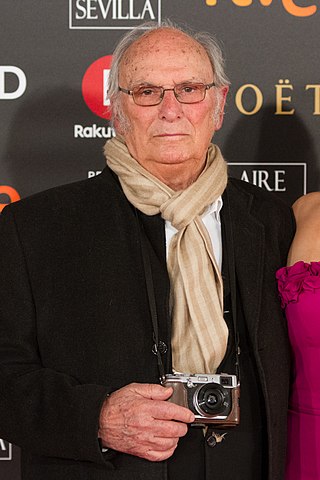
Carlos Saura Atarés was a Spanish film director, photographer and writer. With Luis Buñuel and Pedro Almodóvar, he is considered to be among Spain's great filmmakers. He had a long and prolific career that spanned over half a century, and his films won many international awards.
Sergio Kleiner, also credited as Sergio Klainer, is an Argentine-born Mexican film and television actor.

Leonardo Máximo Sbaraglia is an Argentine actor, with extensive credits in both Argentina and Spain. He has also worked in Mexico, and was cast in his first English-language role in Red Lights.
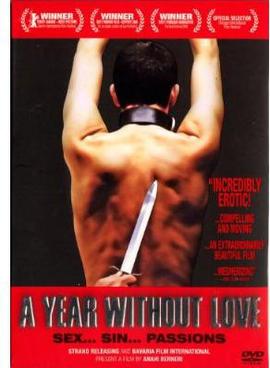
A Year Without Love is a 2005 Argentine drama film directed by Anahí Berneri, and written by Berneri and Pablo Pérez, adapting Pérez's autobiographical novel of the same title.
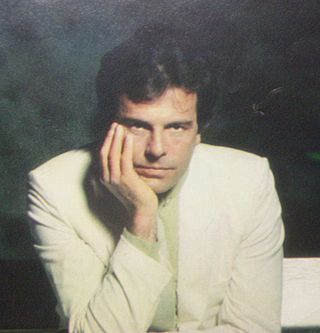
Víctor Laplace is an Argentine film actor.
Leopoldo Torres Ríos was an Argentine film director and screenwriter. His brother Carlos Torres Ríos was a notable cinematographer. His son was the film director and screenwriter Leopoldo Torre Nilsson.

Fernán Gonzalo Mirás is an Argentine film and television actor and film director. He is sometimes credited as Fernando Mirás.
Luis Luque, born Luis Antonio Pedro Barattero, is an Argentine film and television actor. He has made over 40 appearances in film and television in Argentina since 1982, when he appeared in Aprender a vivir.
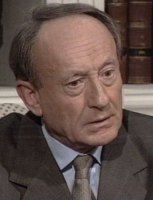
Arturo Maly was a Silver Condor Award–winning Argentine actor.

Eduardo Montes-Bradley is an Argentine-born American filmmaker known for his documentaries films Evita, Rita Dove: An American Poet, and Harto The Borges. His most recent films are Black Fiddlers and Daniel Chester French: American Sculptor He’s currently working on The Italian Factor: The Piccirilli Story.
Alejandro Rozitchner is an Argentine writer. "Artist of the ideas" or "intellectual nutritionist" are some of the names with which he describes his work. He is characterized by his affirmative thinking, his appreciation for enthusiasm, and for his open, casual, and provocative style.

Vadim Glowna was a German actor and film director. Since 1964, he appeared in more than 150 films and television shows.
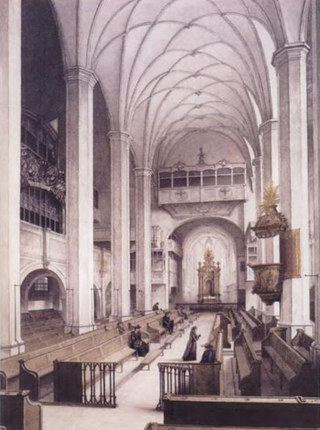
Johann Sebastian Bach composed the church cantata Christus, der ist mein Leben, BWV 95 in Leipzig for the 16th Sunday after Trinity and first performed it on 12 September 1723.

Miguel Ángel Poveda León is a Spanish flamenco singer known by his stage name Miguel Poveda.
Raúl Jorge Tignanelli Mascaró, known as Raúl Taibo is an Argentine actor, whose work has been mainly in television. In 1973 he played a title role in Hipólito y Evita and in 2014 starred in Necrofobia. He is best known for his role as Lautaro Lamas in the 1990-1 telenovela Una voz en el teléfono.
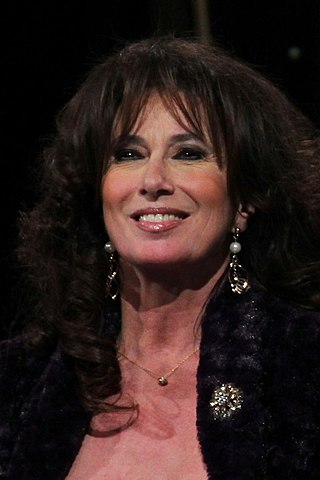
Luisa Kuliok is an Argentine actress of theater, film and television.
Aurelia Del Carmen Guarini is an Argentine anthropologist, teacher, film director, and film producer specializing in anthropological documentary films. She teaches visual anthropology and directs documentaries in Argentina and in Cuba. She serves on the documentary projects' evaluation committee at the National Institute of Cinema and Audiovisual Arts and participates in Cine Ojo projects.